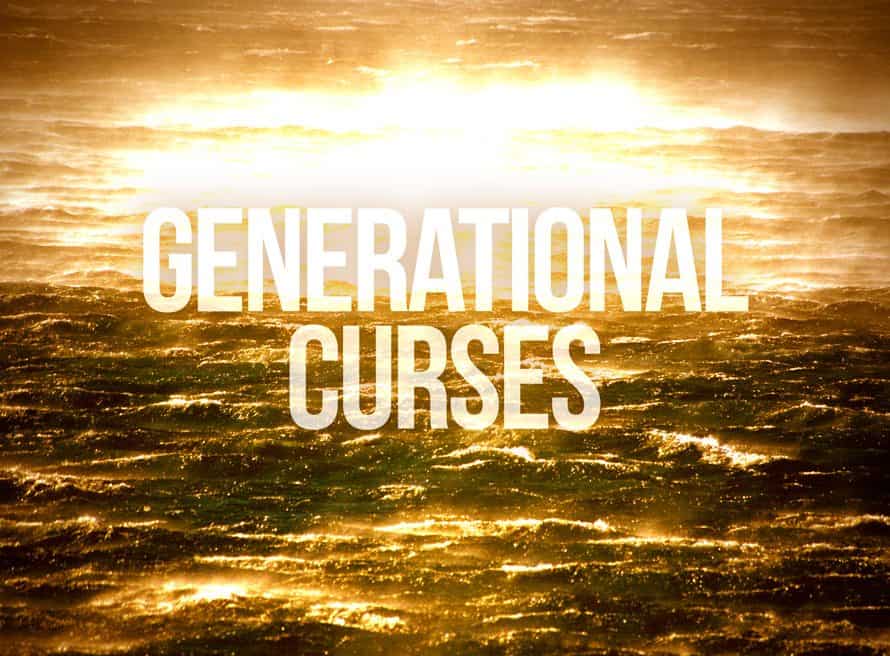
Bible & Generational Curses
Many Christians struggling with addictive behaviors, bad relationships, or dire circumstances wonder if they are victims of generational curses. In other words, they worry that God is punishing them for the sins of their ancestors.
Prosperity preachers like Joel Osteen lend credence to this notion. “The things you struggle with – they didn’t just happen to show up,” he says in a video message. “Somebody in your family line opened the door… . It will continue until somebody rises up and puts a stop to it. Somebody has to deactivate that gene.”
Osteen blends a portion of Deut. 30:19 with commentary, “‘I set before you life and death, blessing and curses. Choose life so that you and your descendants will live.’ Notice your decisions don’t just affect you, they affect future generations.”
Proponents of generational curses cite additional Bible passages such as:
Ex. 20:5 – “I, the Lord your God, am a jealous God, punishing the children for the fathers’ sin, to the third and fourth generations …”
Ex. 34:7 – “But He will not leave the guilty unpunished, bringing the consequences of the fathers’ wrongdoing on the children and grandchildren to the third and fourth generation.”
Similar warnings are repeated in Num. 14:18 and Deut. 5:9.
So, does the Bible really teach generational curses? No.
Curses and consequences
When we look carefully at these passages of Scripture, it becomes clear that consequences, not curses, are passed from one generation to the next. These passages have more to do with Israel and idolatry than with modern-day family dysfunction.
It’s certainly true that people may inherit bad character traits from their parents as the sin nature is passed down from generation to generation. And the sinful behavior of one family member may set a precedent for current and future generations.
But we cannot blame our bad behavior on rotten genes, lousy parents – or worse, on demons.
Looking at the Scriptures quoted above, we should understand that God is speaking to multiple generations that typically live together under one roof – grandparents, parents, children, and grandchildren. Since the elders of the household are responsible for instructing the children in the ways of God, their failure to do so results in consequences for the entire family.
As Hank Hanegraaff writes in The Complete Bible Answer Book, “The children of alcoholic fathers frequently suffer neglect and abuse as a direct consequence of their father’s sinful behavior. Moreover, the descendants of those who hate God are likely to follow in the footsteps of their forefathers.”
As a further comfort, the Bible assures us that “The person who sins is the one who will die. A son won’t suffer punishment for the father’s iniquity, and a father won’t suffer punishment for the son’s iniquity. The righteousness of the righteous person will be on him, and the wickedness of the wicked person will be on him” (Ezek. 18:20).
A second Adam
While tracing our sin nature back to Adam, we may rejoice that a second Adam, Jesus Christ, has come. “So then, as through one trespass there is condemnation for everyone, so also through one righteous act there is life-giving justification for everyone. For just as through one man’s disobedience the many were made sinners, so also through the one man’s obedience the many will be made righteous” (Rom. 5:18-19).
“The cure for a generational curse has always been repentance,” writes S. Michael Houdmann at gotquestions.org. “When Israel turned from idols to serve the living God, the ‘curse’ was broken and God saved them (Judges 3:9, 15; 1 Sam. 12:10-11). Yes, God promised to visit Israel’s sin upon the third and fourth generations, but in the very next verse He promised that He would show ‘love to a thousand [generations] of those who love me and keep my commandments’ (Ex. 20:6). In other words, God’s grace lasts a thousand times longer than His wrath.”
Though many of us struggle with sinful behaviors that haunted our ancestors, or with the consequences of their ungodly decisions, we can be sure that God is not writing us off just because of sins committed long ago.
Ultimately, we look for the day when there is no more curse and God Himself wipes every tear from our eyes. Our struggle with sin and its consequences will end as the “previous things” – death, grief, crying, and pain – pass away (Rev. 21:4).





0 Comments:
Post a Comment